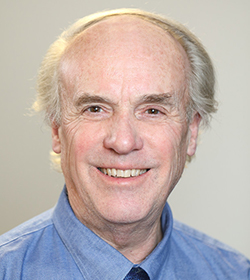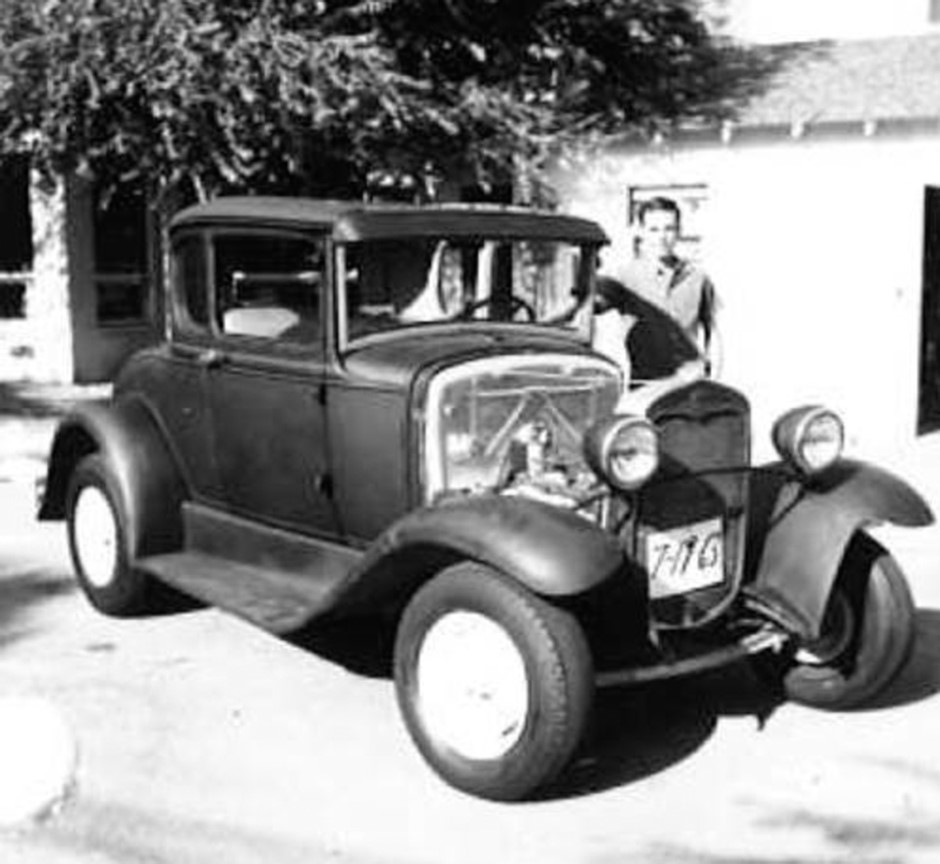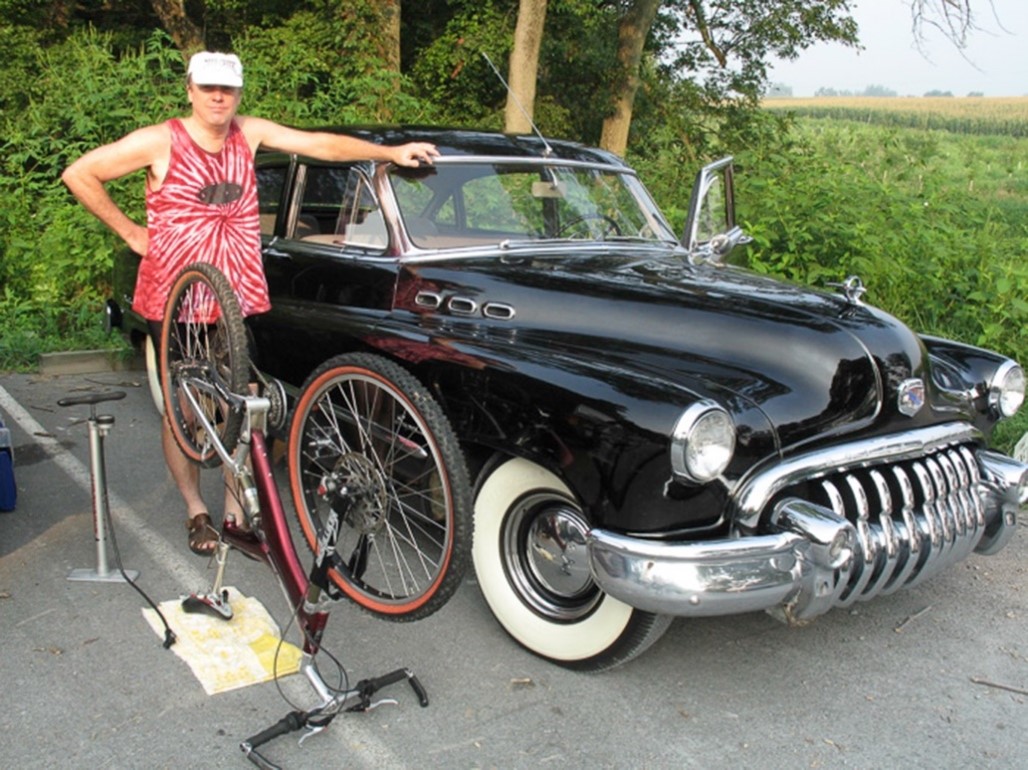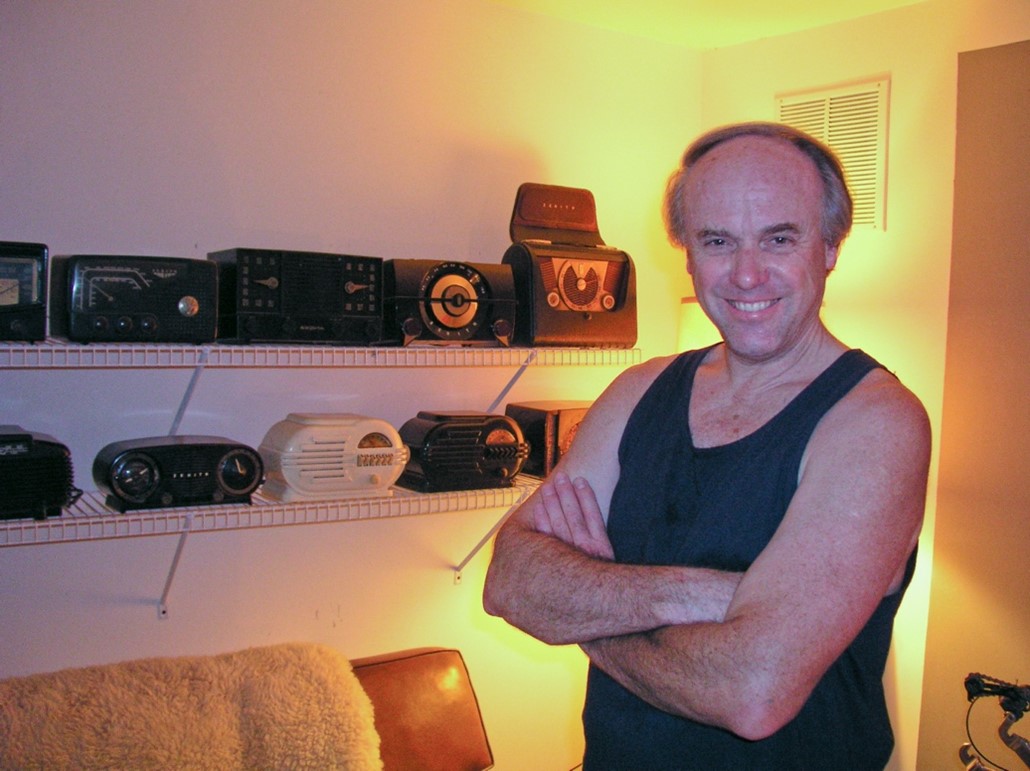 Dr. Tony Beck. Credit: NIGMS.
Dr. Tony Beck. Credit: NIGMS.
We’re greatly saddened to share that L. Tony Beck, Ph.D., died of natural causes on April 7, 2025, while on the NIH campus. He was heading to the job that defined the later part of his career, which was serving as the program director for the Science Education Partnership Award (SEPA) program. Tony also oversaw the STEM interactive digital media small business (SBIR/STTR) and IDeA Networks of Biomedical Research Excellence (INBRE) programs for NIGMS.
Path to a Scientific Career
Tony was born in Rancho Cucamonga, California. He earned a B.A. and an M.S. in biological sciences at the University of California, Riverside (UC Riverside), and a Ph.D. in cell and molecular biology from the University of California, Irvine. He conducted postdoctoral research at the University of Colorado Health Sciences Center and the Eleanor Roosevelt Institute for Cancer Research.
Tony began his NIH career in 2000 as a scientific review officer at the National Institute on Alcohol Abuse and Alcoholism. He moved to the National Center for Research Resources (NCRR) and assumed responsibility for SEPA, continuing when it was later relocated to the Office of Research Infrastructure Programs in the Office of the Director. While at NCRR, he also managed the Clinical and Translational Science Awards and Human Embryonic Stem Cell Infrastructure programs.
 Tony with his first, but far from last, automobile: a circa 1931 Ford Model A, modified in the style of a hot rod. Credit: Courtesy of L. Tony Beck.
Tony with his first, but far from last, automobile: a circa 1931 Ford Model A, modified in the style of a hot rod. Credit: Courtesy of L. Tony Beck.
Tony credited his career in science to E. Crellin Pauling, Ph.D., son of Nobel laureate Linus Pauling, Ph.D. Dr. Pauling and Tony first met while Tony worked at an auto parts/repair shop. They found that they shared a passion for cars—and for problem solving. Impressed by his diagnostic skills, Dr. Pauling encouraged Tony to visit him at UC Riverside and consider a career in science. As Tony put it, “Crellin saved me from a lifetime spent in auto repair.”
Passions Outside of Work
Greg Dale, vice president of engineering and product development at Sherlock Biosciences, met Tony in the early 1990s when they both worked at the Montgomery County–based biotechnology company CellCo. Dale says, “Tony was a generous man with the heart of a collector—he liked to collect all sorts of things.” Dale introduced him to another passion: mountain biking. Tony delighted in riding trails on Sugarloaf Mountain on his special-order Trek Y-frame mountain bike.
Kathy Pfaender, a retired senior health policy analyst for the Food and Drug Administration’s Regulatory Counsel, shared Tony’s passion for mountain biking and also recalls his interest in auto collection. A partial list of his collection includes a 1950 Buick Special (pictured below), a “1960-ish” Buick Flxible ambulance, a 1966 Ford 350 dump truck, a beloved 1986 BMW E24 6-Series two-door coupe, and a 1995 Ford F-150 pickup. On a more personal note, she says, “I credit Tony with being instrumental in helping my two sons mature into the successful men that they are today. He generously gave them his time and knowledge. He was a real mentor for them.”
 Tony and his 1950 Buick Special. Credit: Courtesy of Greg Dale.
Tony and his 1950 Buick Special. Credit: Courtesy of Greg Dale.
Automobiles were not the only things that Tony liked to collect. He had a truly impressive number of antique radios (“probably more than 50,” pictured below) that ranged in size from tabletop to floor standing. He also enjoyed collecting seeds, especially tomato seeds, which he would germinate in his dining room under grow lights and then transfer into outdoor pots once the weather permitted. Tony would share the seedlings or bring in a selection of tomatoes for those not in a position to grow them.
 Tony with a “small” selection of his antique radios. Credit: Courtesy of Greg Dale.
Tony with a “small” selection of his antique radios. Credit: Courtesy of Greg Dale.
The SEPA Program and Responses from Grantees
SEPA supports educational activities for pre-kindergarten through grade 12 to ensure that students and teachers around the country have opportunities to pursue studies in STEM. SEPA also supports informal STEM education activities outside the classroom.
Tony threw himself into learning about the SEPA audiences, tapping into sources inside NIH and across the federal government. He developed expertise in effective approaches for K-12 STEM education and informal education activities to accelerate the learning of complex science concepts.
The news of Tony’s passing spread rapidly through the tightly knit community of SEPA grantees. Immediate expressions of sympathy and testimonials to his hard work and the positive effect he had had on their careers permeated the community. Some grantees have permitted us to share their responses:
— Stephen Koury, Ph.D., University at Buffalo
— Revati Masilamani, Ph.D., Tufts University
— David Petering, Ph.D., University at Wisconsin-Milwaukee
— Virginia Stage, Ph.D., R.D.N., North Carolina State University
Nancy P. Moreno, Ph.D., M.Sc., professor and chair of the Huffington Department of Education, Innovation, and Technology at the Baylor College of Medicine, has been a principal investigator (PI) on SEPA grants since the program was initiated. Dr. Moreno comments: “Tony Beck was passionate about creating opportunities for young people in STEM. Over more than 2 decades, Tony’s name and boundless enthusiasm became synonymous with the SEPA program. We will miss him as a colleague, mentor, relentless education champion, and most of all, friend.”
Louisa A. Stark, Ph.D., professor of human genetics and former director of the Genetic Science Learning Center at the University of Utah School of Medicine, worked with Tony as the program officer for her SEPA grants for more than 2 decades, including grants for hosting the annual SEPA PI meeting since 2006. She concurs with Dr. Moreno’s statements and shares that Tony’s leadership led to several important efforts designed to promote sustainability for the SEPA program. She states, “Early on, he recognized the importance of documenting the impacts of SEPA projects and the SEPA program overall via strong evaluation studies. Due in large part to Dr. Beck’s efforts, in 2022 SEPA became an NIH-wide program with 18 institutes and centers and two offices participating, expanding potential funding for SEPA grants. The STEM education community has lost a tireless leader.”
Knowing that Tony was nearing retirement, a group of SEPA grantees formed a team to honor him at a future NIH SciEd meeting with a memory book and video testimonials about his impact on the community. This memory book will now be presented to his family. The videos, along with scanned sympathy cards and additional photos of Tony, are available to view.
Tony’s passing leaves a large void in the hearts of those who knew and loved him. We hope that the knowledge of how wide and dedicated this community was will provide some comfort to his family, friends, and colleagues.
Tony is survived by his sister Bonnie and his brother Michael, as well as one niece and two nephews (some of whom used to call him Uncle Geezer).


Tony was a good friend dating back to about 1965 at UC Riverside. Known locally as TB Coors, he was one of the most positive people I have ever known. I regret not having seen Tony for many years, yet he and I emailed on an irregular basis over all these years.
We are all saddened by the passing of Tony. Every time I talked to him about high school he had the profound ability to remember all those days quite fondly. At UCR he was an influential leader and loving brother of Beta Delta Sigma. Best wishes and condolences to his family.
I knew Dr. Beck as an undergrad at UCRiverside. We all loved him too, for his kindness, his amazing sense of humor (talking to him always included laughter), and the aura of goodness shining out of his dark brown eyes. Even though I haven’t had that much contact with him since the 60’s, I am crying over this news.
Thanks to Tony’s vision and leadership, the SEPA program transformed into a vibrant, collaborative community of biomedical and K12 researchers and practitioners with a strong collection of evidence-based programs that welcomes all students and communities into the world of STEM. Celebrating the life of “the best program officer ever.”
I am saddened to hear of Tony’s passing. I worked with him for nearly a decade at NCRR and admired his passion and vision for STEM research and the SEPA program. His work tour of duty included weekends and holidays which is a testament to his commitment to public service.